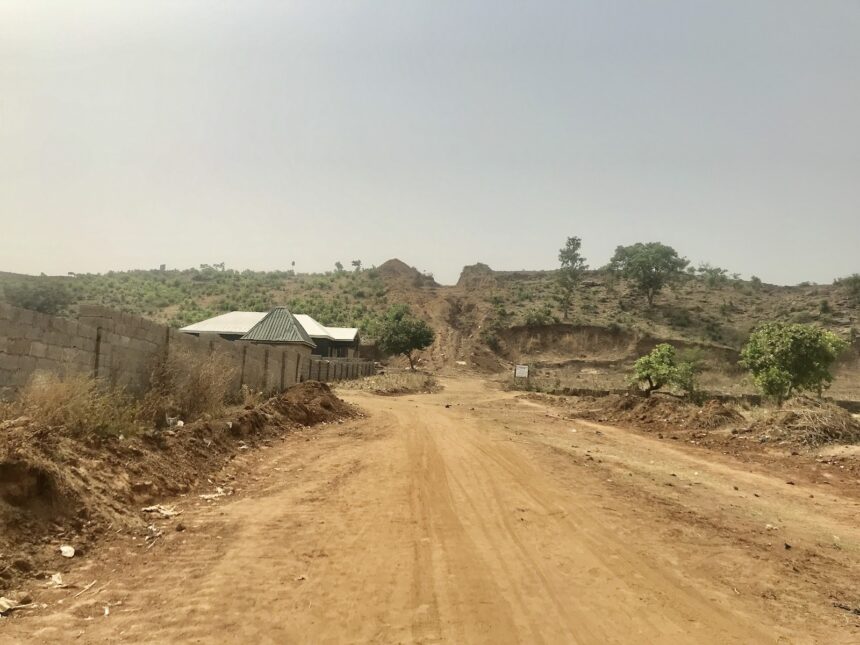Neither a mere notion nor a hoax, climate change is a pressing crisis for the western world, demanding immediate action. Africa, sadly, is not immune to the ravages of the climate crisis, as different parts of the region contend with flooding and desertification.
Many people in the world today acknowledge this dismal reality and are pooling resources and proposing strategies to save the globe
Once thinly discussed, climate change is now a common refrain in symposiums and awareness campaigns, courting attention in almost every public discourse. As climate change courts attention in most public discourses, all hands are now on deck to mitigate the rapid escalation of climatic disasters.
If global efforts have taken on the problem of climate change with more urgency, this campaign has been undermined by persisting environmental hazards brought about by man-made activities, however.
Abuja, Nigeria’s capital, for example, has witnessed a spate of deforestation over the years. Trees are felled often without adequate replacement. This is partly due to the net influx of people attracted by the city’s expanding opportunities. Between 2021 and 2024, Abuja’s metropolitan area population rose to 4,026,000 from 3,464,000. The government expects the figures to rise further.
The Impact of Deforestation
Deforestation, which is the deliberate thinning of trees and forests, releases stored carbon back into the atmosphere as carbon dioxide, which contributes to climate change.
Africa has reported the most extensive deforestation, closely followed by South America. The Food and Agriculture Organization estimates that approximately 420 million hectares of forest were lost between 1990 and 2020.
Deforestation accounts for 12-20% of global greenhouse gas emissions. Forest degradation and the wanton destruction of tropical peatlands equally contribute to these emissions.
These tropical forests transition from carbon sinks to carbon sources as they emit more carbon than they absorb. One of such is the southeastern part of the Amazon Rainforest, which scientists consider a net carbon source.
The burgeoning population necessitates multifaceted actions to sustain residents, including the construction of more housing. However, this comes at the cost of tree loss, exacerbating negative climate impacts.
Government’s lack of commitment
The net consequence of the continued degradation of forests can be seen in the torrid heat waves experienced in the capital city..
Trees play a crucial role in transpiration, which influences rainfall formation. Continued deforestation disrupts the water cycle, affecting planting seasons for farmers and exacerbating food insecurity.
“Continuous urbanization, accompanied by tree felling, significantly contributes to extreme hot weather. Trees provide shade and absorb solar radiation, cooling the surrounding environment through evapotranspiration,” explained Izge Aliyu, a climate expert.
Aliyu highlighted the government’s lack of commitment to its pledges in the 2015 Paris Agreement.
Diverse Perspectives
Bemoaning the overwhelming heat in the city, David Laban, an Uber driver, marvels at the capital’s rapid transformation.
“I was born and raised in Abuja, and it’s been 43 years now. I just drive around acting like what I see is normal, but it’s not,” he recalled. “Anyone who has been in Abuja for that long can attest to the fact that it was one of the regions with very cold and soothing weather.”
He recalled the city’s abundant trees, which provided shade. Driving through the city, Laban sees formerly empty areas teeming with crowds, with sparse trees left to maintain a comfortable climate.
“I can’t say I know much about climate change, but I am certain that the indiscriminate felling of trees is causing what we continue to experience today. I sincerely hope it all gets better.”
Prime Progress interacted with a landowner in Abuja with multiple properties within the capital.
Discussing his property acquisitions, Nonso Ibuchi (not his real name) said, “Land ownership is not easy in Abuja. There are lengthy procedures one must undergo, and this comes at a significant cost.”
Ibuchi acquired his first land in 2010 in the Apo district, where he built his personal residence, before accruing additional land in areas like Kurudu, Kpegyi, Nyanya, Bwari, including parts of Nasarawa State.
“It’s the same story with most structures you see in Abuja. They’re either owned by the government or individuals who have navigated the formal processes to legally own property.”
To offset the impact of climate change caused by urbanization, Ibuchi suggested the imposition of strict regulations compelling landowners to cultivate a specific number of trees on their premises.
Amid the various perspectives that trail the climate-change crisis, it raises pressing questions: Where does the effort of climate enthusiasts lie? What can be done better to combat climate change effectively?





